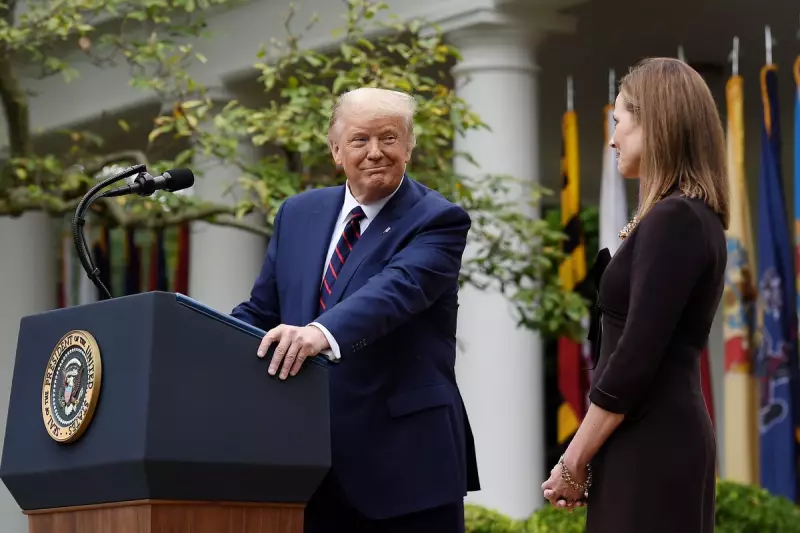
In a remark that has sent shockwaves through the American political establishment, Supreme Court Justice Amy Coney Barrett has openly discussed the hypothetical—and blatantly unconstitutional—scenario of a president attempting to cling to power for a third term.
The comments, made during a public appearance at the Ronald Reagan Presidential Library, are being widely interpreted as a thinly-veiled warning about the political ambitions of former President Donald Trump.
A Constitutional Line in the Sand
Justice Barrett, a conservative appointed by Trump himself, was responding to an audience question about the court's role in upholding democratic norms. She pointedly stated that some norms are, in fact, codified in law, making the example of presidential term limits unequivocal.
"The Constitution already completely answers that question," Barrett asserted, referring to the 22nd Amendment, which explicitly states that no person shall be elected to the office of the President more than twice.
Why This Warning Matters Now
The remarks gain immense significance against the backdrop of the upcoming presidential election and Trump's dominant position as the Republican nominee. While Trump has not formally proposed a third term, his rhetoric often leans towards strongman authority and testing the boundaries of executive power.
Legal scholars suggest Barrett's decision to address this specific hypothetical serves two purposes:
- Reaffirming Foundational Principles: It publicly reinforces the Supreme Court's ultimate duty to the Constitution above any individual or party.
- A Pre-emptive Strike: It signals to any would-be autocrat that the judiciary would be an immovable obstacle to any such power grab, potentially even from a president who appointed them.
The Ironic Twist: A Trump Appointee's Stance
The greatest intrigue lies in the source. Amy Coney Barrett was Trump's final appointment to the bench, securing its conservative majority. Her willingness to potentially check his ambitions highlights the complex and often unpredictable nature of judicial independence.
This is not the first time she has ruled against Trump's interests, having rejected his legal team's attempts to overturn the 2020 election results. This latest commentary suggests a continued commitment to constitutional originalism over political loyalty.
For now, the notion of a third term remains a theoretical debate. But by giving it oxygen from the highest court in the land, Justice Barrett has framed it as a red line that cannot—and will not—be crossed.





